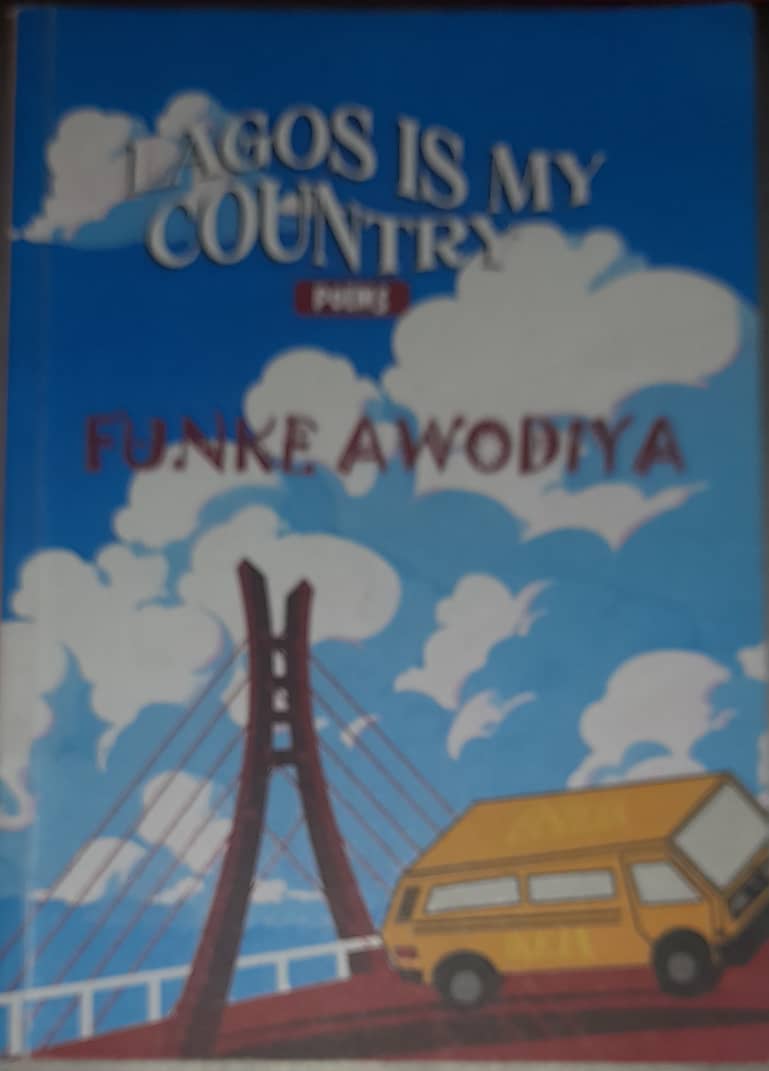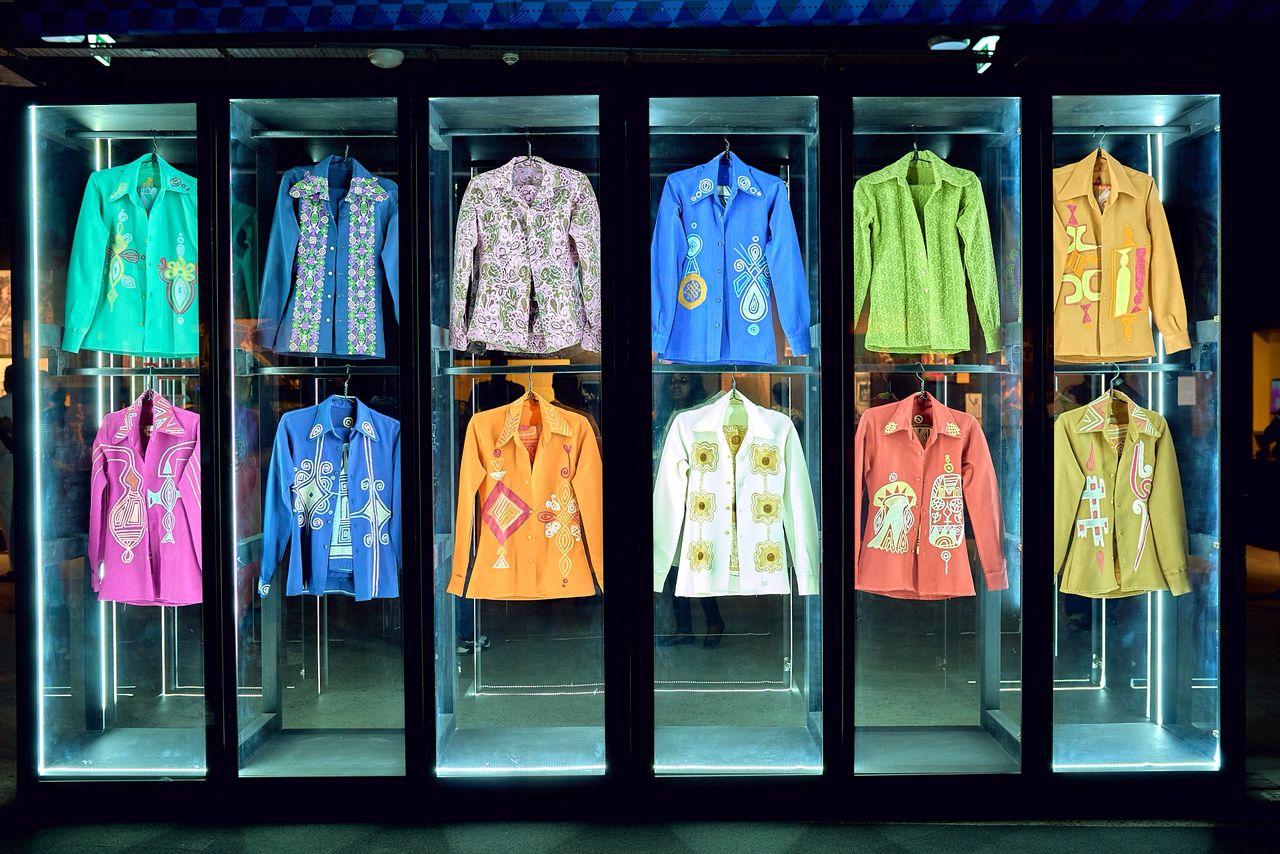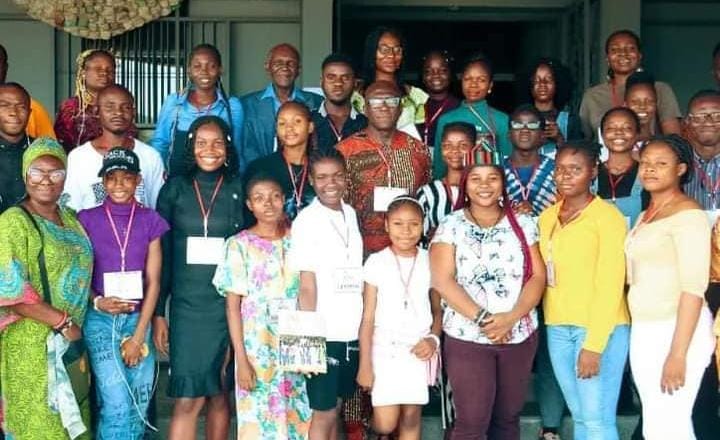Awodiya’s ‘Lagos Is My Country’ as metaphor for dystopia

By Paul Liam
CREATIVES have always attempted to explore the human experiences, histories, social structures, and the cultural essence of cities and spaces around the world. There seems to exist a profound connection between cities, spaces, or places and the people who inhabit them, which explains the intricate relationship between creatives and spaces. In particular, writers, poets, musicians, filmmakers, photographers, and painters have at various times strived to reimagine the impact of cities on their dwellers and how they influence our perception of the world. Art, thus, plays a significant role not only in reflecting a city’s topography, aesthetics, or its mundane attributes, but it also offers us a deeply humanistic insight into the undercurrent of a city or a place’s soul in its most unadulterated form. It also serves as a mirror through which we evaluate a city and how its social systems elevate or undermine the actualisation of human agency, class and economic struggle, poverty and affluence, etc. It helps us to connect with a city or place on a more concrete level.
Art fosters a deeper human connection with cities through its evocative power of representation. For instance, Geoffrey Chaucer’s The Canterbury Tales captivates readers with his vivid depiction of Canterbury as a spiritual and knowledge hub where diverse cultures and beliefs intersect. Canterbury is vividly brought to life as a city of historical significance through this portrayal. Likewise, Chinua Achebe’s Things Fall Apart encourages nostalgic reflection on the cultural and traditional epistemic systems that establish Ogidi as a fictional epicenter of Igbo consciousness. Beyond its fictional scope, avid readers of Achebe’s classic continue to visit Ogidi Village in Anambra State, “Okonkwo,” and Achebe’s ancestral homeland.
Jay-Z ft Alicia Keys’ ‘Empire State of Mind’ is a powerful tribute song that eulogizes the metaphorical and symbolic importance of New York as a global city of dreams where everything is possible. The song describes New York as a “Concrete jungle where dreams are made of/There is nothing you can’t do.” New York is thus presented in the song as a haven of limitless possibilities. Lagos, like New York, is Nigeria’s iconic city of excellence, the centre “where dreams are made of.” Just like New York, Lagos has served as the source of inspiration for all forms of artistic endeavour. Perhaps, Fela Kuti and The Kalakuta Republic are the epitomes of the liberality and freedom that Lagos personifies. Fela Kuti, in various songs like “Eko” and “Monday Morning In Lagos,” problematizes the chaotic and cosmopolitan nature of the city. Proud of the influence of Lagos on his global music breakthrough, Afrobeats superstar, Wizkid, titled one of his albums Made in Lagos, illustrating the city’s strategic importance as a center of artistic and creative excellence.
Cyprian Ekwensi in Jagua Nana, Toni Kan in Night of the Creaking Bed, and Damilare Kuku’s Nearly All The Men in Lagos are Mad are some of the important works that have highlighted the complex nature of Lagos. Lagos of the Poets, edited by Odia Ofeimun, is an illuminating anthology of poems that chronicles Lagos in its “Beauty and the Beast” glory. It is not surprising that Funke Awodiya alludes to it in her acknowledgment as a major inspiration for her own impressive ode to the city, Lagos Is My Country. However, for Awodiya, Lagos is not just a city of chaos, beauty, and ugliness; it is a symbolic representation of Nigeria. In other words, Lagos in Awodiya’s perception is a country. However, before exploring Awodiya’s country, it is essential to note that the 53-page collection comprises approximately 47 poems and is divided into four sections: “Lagos is My Country,” “Eko Whereabouts,” “Lagos Stories,” and “I am Lagos.” The cover design and print quality are commendable.
Thus, Awodiya’s Lagos is more than just a city of dreams and chaos. It is a verisimilitude of the sociopolitical formations and ideological exigencies that belie the dearth of national consciousness and polarization exacerbated by leadership failure, identity crisis, existential threats, and perverse poverty both of the mind and material, which are foundational to the institutionalization of a concrete national vision necessary for the enthronement of socioeconomic justice and an egalitarian society. Suffice it to say that Awodiya perceives Lagos beyond the familiar metaphor of decay and the “Centre of Excellence” toga and situates it as the nexus of Nigeria’s transformational agenda. This is to say that Nigeria’s transformation is tied to Lagos, not just economically but spiritually and culturally.
The foregoing premise is supported by the title and opening poem of the collection, ‘Lagos Is My Country.’ In the poem, we see the persona’s philosophical view as a Nigerian, an African, and a political identity, as well as the larger hypocrisy of the West in choosing which African to admire based on social achievement or global standing. Even when being Nigerian and African can be tiring depending on the situation, for the persona, Lagos always offers comfort and support, making her loyalty to Lagos stronger than to anywhere else. The poem functions more as a political statement than as an expression of love for Lagos. The first two stanzas are represented below for emphasis:
I am Nigerian
But Lagos is my country
This poet is not here to confuse but to convince you
That children love their mothers more than their fathers
This country is patriarchal in nature
So, I wear my father’s name like a bell around my neck
Announcing my arrival everywhere I go
She is Nigerian, capable of doing anything evil
Prostitution, human trafficking, drug abuse
But when the table turns and I excel in literature,
In medicine, in sport and in everything
To which I devote my talent
I become an African,
A faceless African
An American of Nigerian Origin
A Briton of Nigerian Origin
My accusers saying I can only excel in other climes

In the above excerpt, we encounter the persona’s visualization of the notion of being a Nigerian and the burden of expectation that comes with it. The persona notes in the first stanza that her relationship with Nigeria is like the relationship between a father and a child, that the child always prefers her mother over her father, possibly because a father’s love is harsher than a mother’s tender care and affection. This analogy explains the strained relationship between the persona and her country, and in a practical sense, the burden of being Nigerian with all the negative baggage and reputational damage it suffers. Although Nigeria, as the father in the poem, has little to offer his child, when the child succeeds, it is the father who takes the glory for her success. The person thus infers that Lagos is the loving mother that nurtures and propels her children to success, hence she is the persona’s country.
This deduction is succinctly expressed in the second stanza of the poem, in which the persona asserts that her success attracts attention and love even from those who didn’t believe that anything good could come from her. For example, she notes that her success in various fields like medicine, sport, literature, and everything, she celebrated as an African, a faceless African without identity, because at that point she is no longer a Nigerian, the bad Nigerian, but a proud daughter of Africa. Similarly, the West also embraces her success by giving her new identities such as “An American of Nigerian Origin”, “A Briton of Nigerian Origin.” This representation berates the West’s penchant to associate itself only with the success and wealth of Africa.
In the third stanza, the persona takes a swipe at Nigeria for betraying her children and disgracing themselves before the world. She alludes to the incident a few years ago when former President Muhammadu Buhari, in an interview with a Western media giant, described Nigerian youths as lazy. But the persona says she forgave the West’s stereotyping of Africans when her own president made that infamous declaration. The stanza reads: “But I forgave them a long time ago/When my father stood in front of a neighbor’s house/and called me a lazy youth.” However, despite the betrayal by her country, the persona finds solace in the welcoming arms of Lagos and goes on in the fourth stanza to declare her unalloyed admiration and allegiance to Lagos, thusly:
Yet, I wear my green with a hopeful grin
My white with pride
My red, my blood, my passion for my Lagos
My blue, my shade of love for Lagos
I fly in yellow, the glory of my Lagos
Eko Ile mother of all cities
A lady of justice and progress
A land of coconut treasures and golden fishes
Lagos and I have come a long way
When she buried my umbilical cord
in the depth of her lagoon
She cares about my health but he can do better
The lengthy stanza goes on, enumerating the uniqueness of Lagos and why she is passionate about the city of her birth. Towards the end of the stanza, she says: “Lagos is My Success Story, muse that fills my pen/I owe allegiance to God to add to her greatness.” And in the last two lines of the poem, she declares: “This poet is a Nigerian but Lagos is her ‘country’/Eko Akete voice of a city that flows and flows.” The poem is a haunting critique of the leadership failure and dysfunctions created by the political elites, whose corruption and criminality have destroyed the reputation of the country, for which Nigerian citizens have become objects of derision globally. It is a sad commentary on Nigeria and those whose criminal activities contribute to the humiliation of hardworking and responsible Nigerians globally.
In the poem “Woman With A Large Heart,” the persona compares Lagos to a gorgeous lady whose sexiness and beauty attract all manner of men seeking a piece of her. She further states that Lagos is a generous woman who welcomes all and gives her all to those who seek her generosity. The first and second stanzas of the poem offer an illustration of the essence of the poem:
a woman,
boisterous and voluptuous
skilled at luring lewd travelers
into her large bosom
her lips are coated
with truth and lies
her hips swing from
island to mainland
In the last line of the poem, the persona describes Lagos as “A woman with a large heart,” thereby highlighting the cosmopolitan nature of the city and hospitality to people of all races, tribes, and religious beliefs. Awodiya’s poeticization of Lagos espouses her undiluted love and connection to the city. Through each of the poems, Lagos comes to life in all its glory, shape, and form. To illustrate the crux of the collection as a poetics of place, some of the poems are titled by the names of the major locations that make up the entity called Lagos, including Ikorodu, Ojuelegba, Bariga, Badagry, AJ City, Mainland, Island, etc. Each of these poems tells a story about its history and peculiarities. For example, in the poem “Badagry,” the persona revisits the historical slave trade and how Badagry served as a major memorial of the indignity of the European slave trade expedition in Nigeria. The poem reads:
Do you remember the free born that became slaves
Crossing the white sands to the land that wiped their memories
Of home, laughter, banters family and food cooked with love
Your groves and watery deep became the gateway of the merchant of souls
How dreadful the gate of no return!
The poem is a sad reminder of the disruptions and dehumanisation inflicted on Africans who were forced into slavery through the Badagry, which was a major slave port through which the slaves were ferried to strange lands where they lost their humanity, characterized by the loss of home, laughter, banter, and African food. In a single breath, the poem reinvokes the tragic legacy of slavery, which Badagry stands as a testimony to today. “Ojuelegba,” according to the persona, is characterized by its culture and masquerades. The first stanza of the poem reads: “Of masquerades and their eyes/beaming in nooks and crannies/on streets and lanes/bubbles and rubbles of night walkers.” Awodiya’s poetic pen touches all aspects of the social and cultural fabric.
In the poem “Lagos Stories,” the persona takes the reader on a historical journey of the origin of Lagos, how it got its name, and the question of ownership. In the opening stanza, the persona enthuses:
There are different stories here;
Lagos is a slave camp, a free born
Eko was christened by Oba Ile Ibimu
Stories fly around in the city all claiming to be real
No man’s land, hate speech infuriating islanders
To say Lagos belongs to none
To fuel flaming disunity
I see Lagos stories in books and hooks
The persona appears pricked by the claims that Lagos belongs to no one but to all who inhabit it, propagated mostly by dwellers who migrated to the city in search of greener pastures. As a bona fide Lagos-born, the poet-persona seems infuriated by this claim, which is designed to create chaos and disunity. In the second stanza, she notes:
In this Lagos are custodians,
White cap chiefs, Awori the flagrant lords
Claim Lagos is their father’s farm
May be the only farmers of sub-Saharan Africa
Rich enough to own Lagos, mother of cities
And in the last stanza of the poem, she states that it belongs to all: “‘Omo Eko ni wa’, song of all born in this city/Lagos is for all, she is a hall gathering hall.” It seems the historical debate about the origins of Lagos and its owners may never end, given its complex background as a colonial and former colonial capital, and later postcolonial capital of Nigeria. Awodiya’s poem is thus a reflection of this complex history, with a promising conclusion that all those who were born in the city are the owners of Lagos. Although the debate about ownership is not peculiar to Lagos, it is a core feature of most cosmopolitan cities globally. Awodiya is also concerned about the existential challenges like poverty and death in Lagos. She recognizes that Lagos is not perfect; it has its negative sides as well, like the 2023 rail mishap that claimed scores of lives, which she dedicates a poem to. For example, in the poem “Lagos of the Dead” she writes:
Death is a silent thought of every living soul
A place one visits alone
And wonder what will happen when the curtains falls
Voice of the dead is the silence like the thought of dying
The pathfinders of this city saw death
When it stole in on them
And made them build tombs as they build houses
Remembering the flickering existence of the strong and the weak
The above excerpt offers a philosophical ideation on the unpredictable nature of death and the loneliness that comes with it. She speaks of those who once built dreams in the city but have gone to the great beyond, leaving behind only memories, and loved to continue with the journey of life. “Lagoon of Tears” is dedicated to the victims of the Otedola Bridge who lost their lives. It is a mournful and lacerating requiem for the dead, and it also raises the questions about the lack of justice for the dead, especially those murdered by the carelessness of the system or individual drivers. The first stanza of the poem reads: “Fear and tears sweep our city/Awash with pain and agony, /Streets, airways float in a Lagoon of tears/Blisters, scarred memories of a black Thursday.” Awodiya is also sometimes critical of her darling Lagos, too, such as in the last stanza of the poem “Sour” in which she reveals her personal beef with the city and how many times she has had to hate the city but it chooses to love her back. The last stanza illustrates this assertion: “I have rekindled my love for her many times/Hiding my sour love for this city/She chose me to be her own, /But {I} here I am hating her for her many sins.” The anthropomorphic representation of Lagos in the suggests a mother-daughter relationship, no matter the number of quarrels and fighting, Lagos, the mother, would always love her irritating child, even though she, the mother, may not be perfect. It is a fine demonstration of the familial relations between the poet and the city.
In conclusion, Funke Awodiya’s work provides a poetic experience of Lagos, written with the fidelity of social consciousness and artistry. It celebrates as well as criticizes, offering a balanced perception of one of Africa’s most populous cities. It is a worthy addition to the corpus of Nigerian place poetry. Of course, the collection is not without its shortcomings; it would have benefited from sturdier proofreading and reworking, for example, the use of British and American English could have been avoided if the poet had stuck with one style, but it has become increasingly difficult to maintain one version of the English language. This has become a common feature of Nigerian writings. Some of the poems read like prose, and there is a lack of consistency in the use of punctuation in the collection. Finally, the book also doesn’t have a copyright page. These oversights, however, do not reduce the quality of the collection. It is a fine tribute to the great city of Lagos and its people.
* Liam is a writer and culture critic




